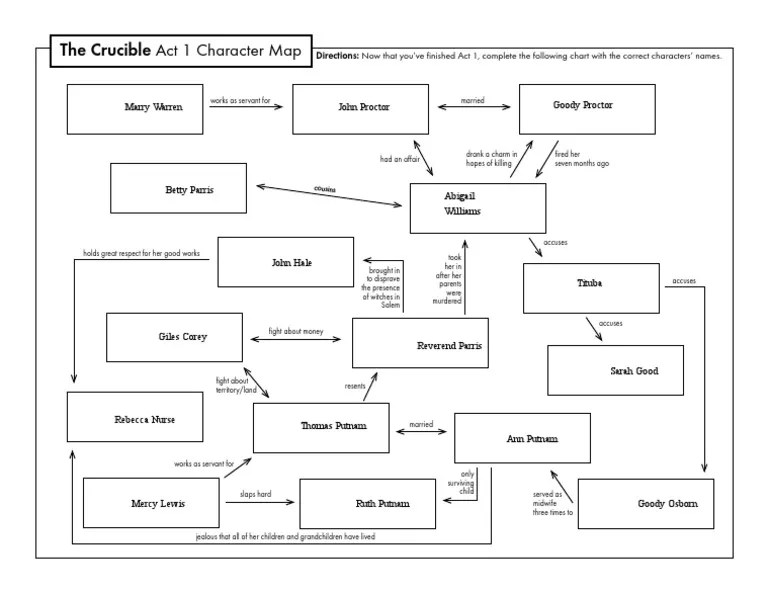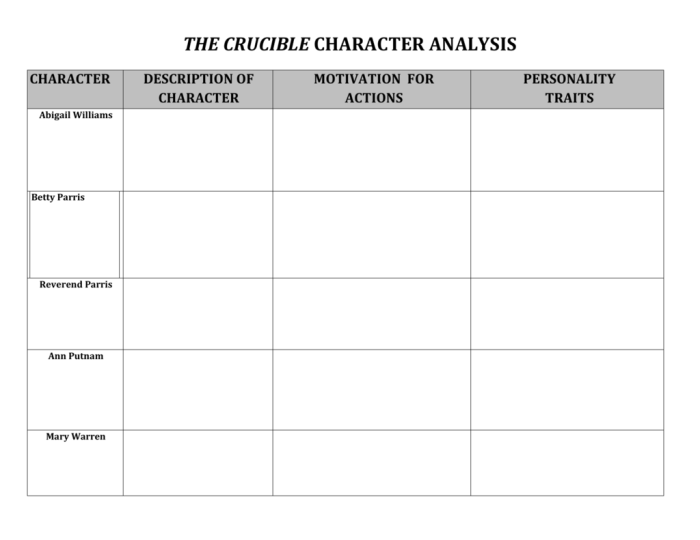The Crucible Act 1 Character Map Answer Key provides an indispensable resource for understanding the intricate web of characters and their motivations in Arthur Miller’s classic play. This guide offers a comprehensive analysis of each character’s role, relationships, and actions, illuminating the complex dynamics that drive the plot and shape the play’s themes.
Through a detailed examination of the characters’ backgrounds, motivations, and interactions, this answer key enhances the reader’s comprehension of the play’s historical and cultural context, allowing for a deeper appreciation of the work’s enduring relevance.
Character Overview: The Crucible Act 1 Character Map Answer Key

The Crucible’s characters represent a diverse cross-section of 17th-century Puritan society. Their motivations, relationships, and actions drive the play’s plot and explore complex themes of good and evil, power and corruption, and the fragility of human nature.
| Character Name | Role | Description | Symbolism |
|---|---|---|---|
| John Proctor | Farmer | A strong-willed and principled man who struggles to maintain his integrity in a society plagued by fear and superstition. | Represents the voice of reason and common sense. |
| Abigail Williams | Orphan | A manipulative and ambitious young woman who uses her power to accuse innocent people of witchcraft. | Represents the destructive power of unchecked desire and the dangers of mass hysteria. |
| Reverend Samuel Parris | Minister | A weak and self-serving man who is driven by fear and ambition. | Represents the hypocrisy and corruption of the Puritan establishment. |
| Elizabeth Proctor | John Proctor’s wife | A strong and independent woman who is falsely accused of witchcraft. | Represents the strength and resilience of the human spirit in the face of adversity. |
| Mary Warren | Proctor’s servant | A young woman who is torn between her loyalty to John Proctor and her fear of the court. | Represents the fragility of human nature and the ease with which people can be swayed by fear. |
Top FAQs
What is the significance of Abigail Williams’ character in Act 1?
Abigail Williams emerges as a pivotal figure in Act 1, driven by her unrequited love for John Proctor and her desire for power. Her accusations of witchcraft set in motion the events of the play, highlighting the dangers of mass hysteria and the fragility of social order.
How does the character of Reverend Parris contribute to the conflict in Act 1?
Reverend Parris’s self-serving nature and fear of losing his authority fuel the conflict in Act 1. His hasty accusations and manipulation of the situation exacerbate the tensions within the community, leading to the escalation of the witch trials.
